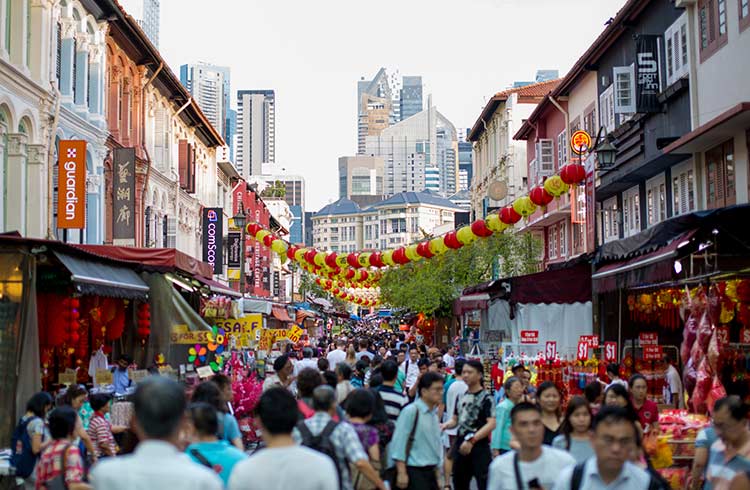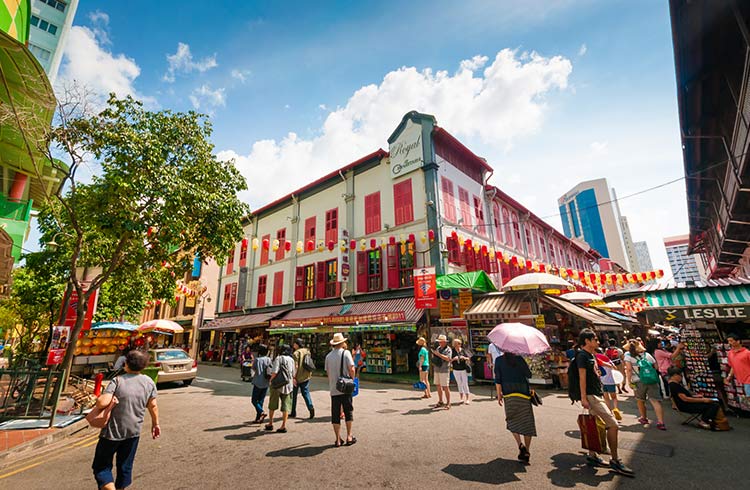Health in Singapore: Travel Tips to Avoid Getting Sick
Singapore is a very clean and safe destination for travelers. Here are a few things to know about health and hygiene before your trip.
 Photo © Getty Images/jeijiang
Photo © Getty Images/jeijiang
Singapore is a very safe place to travel in Asia when it comes to travel health and hygiene.
However, there are a number of health risks travelers should be aware of before visiting Singapore. This is what you should know before you go.
Smoke haze in Singapore
An ever-present hazard to the lungs is what the call "the haze", a pervasive smoke that wafts north from forest fires in Sumatra. This blankets the city with fine particle matter that can settle in the lungs and cause some problems.
The concentration of these particles exceeds the safe limits set by the World Health Organization. People with chronic lung and heart problems can feel a spike in symptoms, while healthy individuals might experience coughing, sneezing, and eye irritation.
When the haze is strong, people are advised to limit their time outdoors.
Zika virus
Zika virus was first detected in August 2016, and since then there have been several localized outbreaks. A mosquito-borne disease like Dengue Fever, Zika is a milder disease with most people not exhibiting any symptoms, however, it is a concern for pregnant women as it can cause complications in unborn children.
To protect yourself, apply a DEET-based repellent, and wear light and long clothing.
Check with your travel doctor before you leave to see if there is still a risk of Zika in Singapore.
Dengue fever in Singapore
Singapore has occasional outbreaks of Dengue fever, which is transmitted by a mosquito that incubates in stagnant water. Historically, most of the outbreaks happened in the eastern half of the island. You can avoid being bitten by wearing long, light clothing and applying deet-based repellent.
The city deals with the problem in a fast and efficient way, and reported cases fall each year. One method is by "fogging" danger zones with a pesticidal mist. You should avoid areas where fogging is taking place, as the chemicals may have toxic effects.
In addition to Dengue fever, there have been reported outbreaks of Chikungunya and Japanese Encephalitis, both of which are transmitted by mosquitos.
Hand, foot and mouth disease
Another infection to be mindful of is hand-foot-mouth disease (HFMD), which has seen a rise in 2010. Transmitted by contact with saliva, mucus and feces, HFMD affects mostly children.
Symptoms include fever, blistering, mouth ulcers, and rashes on the extremities. The disease is typically mild, but complications might lead to aggravated symptoms, and, in rare cases, death.
Outbreaks of HFMD usually break out around March, peak in May, and continue until October. It can easily be prevented by following proper hygiene.
In case you do fall ill, know that Singapore has one of the best health systems in Asia, and is one of the most cost-effective networks in the world. Still, it's not cheap. Travelers must pay for care, and caregivers expect immediate payment. Usually, a deposit is requested before admittance to a clinic or hospital. Health insurance is strongly recommended.
Related articles
Simple and flexible travel insurance
You can buy at home or while traveling, and claim online from anywhere in the world. With 150+ adventure activities covered and 24/7 emergency assistance.
Get a quote
No Comments